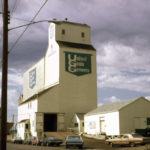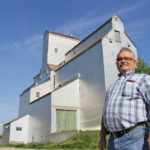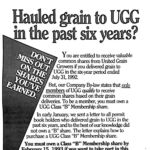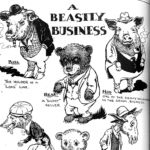If you’re younger, you may find it hard to believe that farmers used to own most of the Prairie grain and grain-processing industry and that they received part of the profits every year. If you’re older, you may know that, but wonder how that changed so quickly. And did it have to change? That’s the















